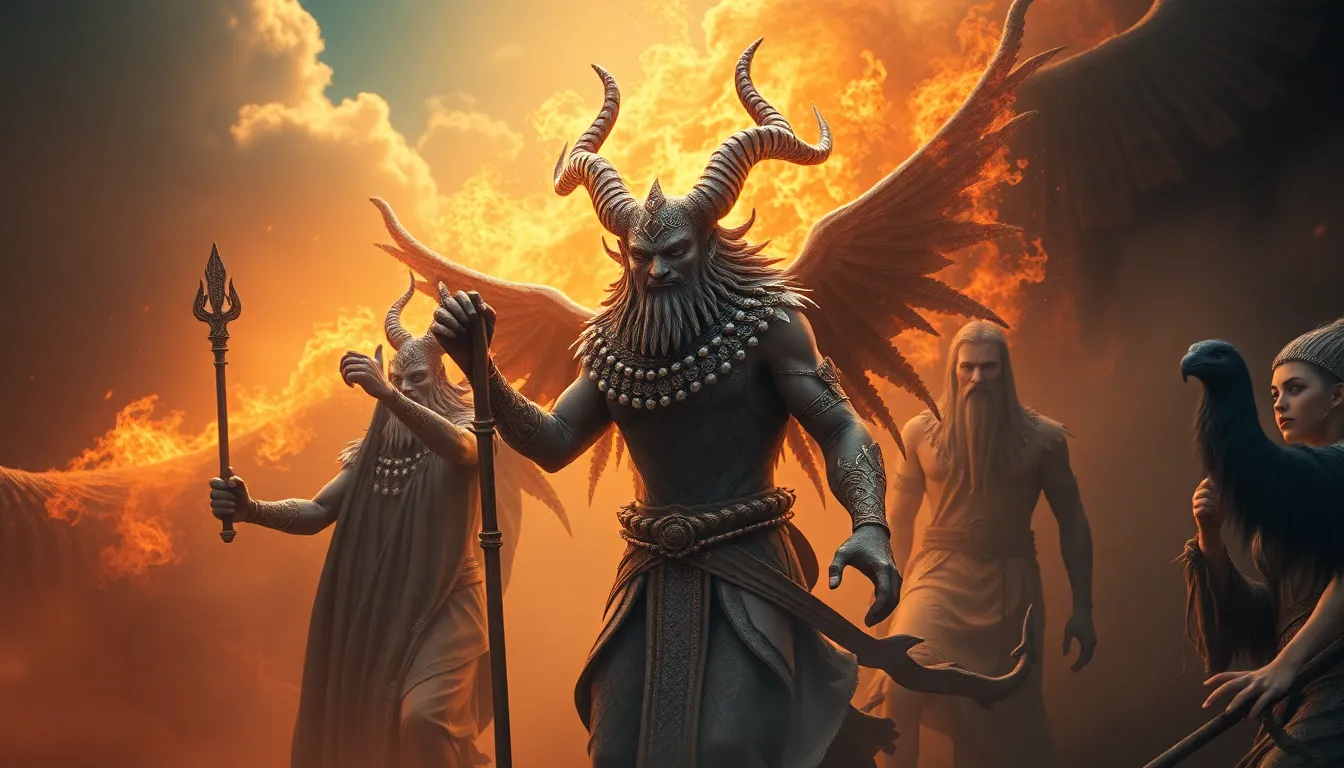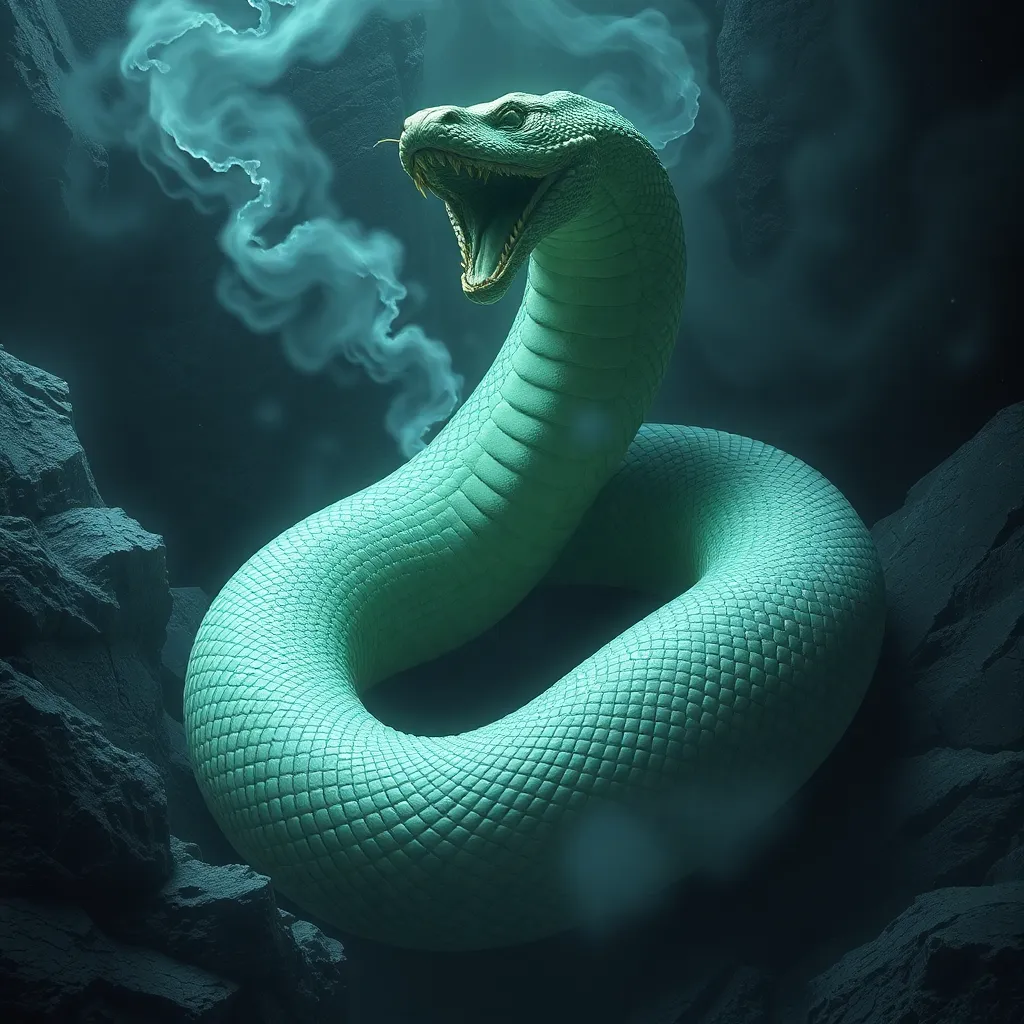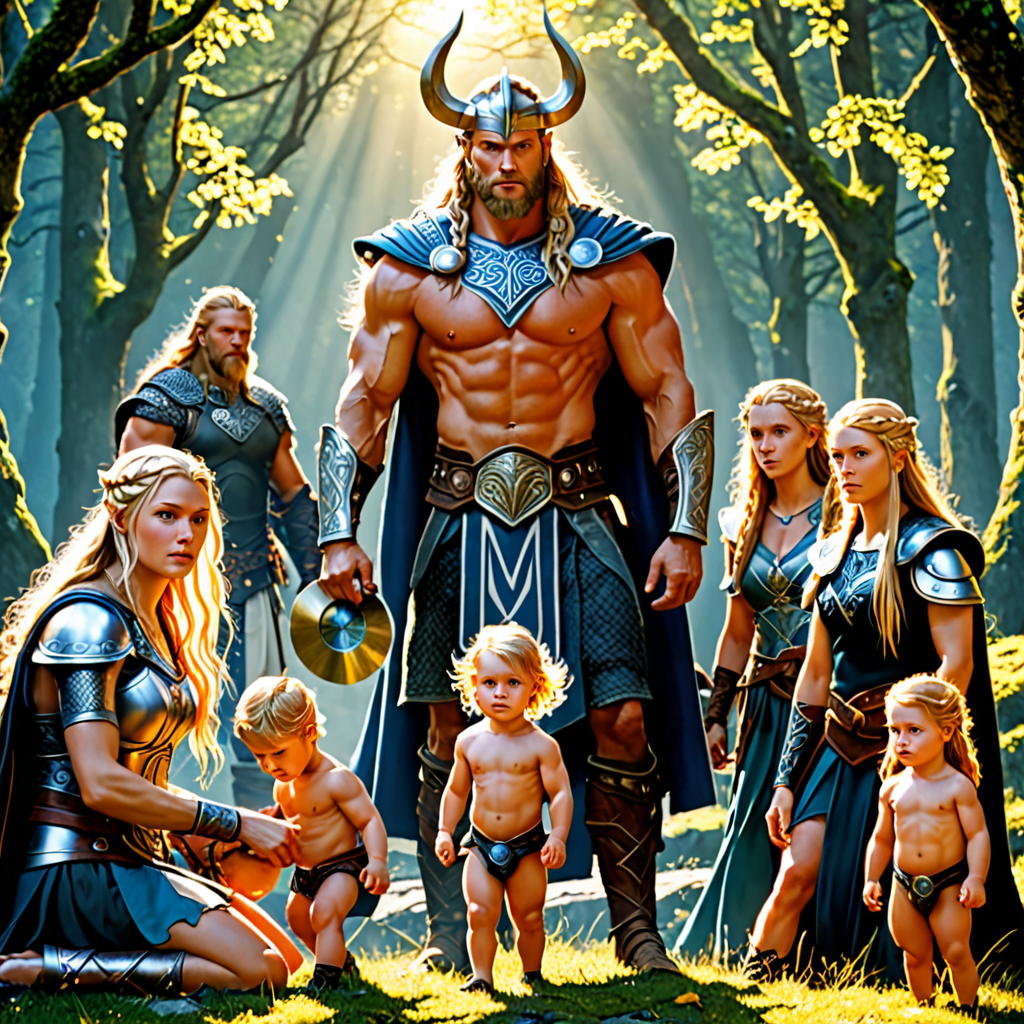From Myths to Movies: Ancient Deities in Popular Culture
Introduction: The Enduring Allure of Ancient Deities
The fascination with ancient deities has transcended time, influencing modern storytelling in profound ways. From literature to cinema, the narratives surrounding gods and goddesses continue to captivate audiences, providing a window into the values, beliefs, and complexities of ancient cultures. These deities, revered in various mythologies, have served not only as objects of worship but also as symbols of morality, cultural identity, and human aspiration.
The Origins of Myth: Understanding Ancient Deities
Ancient deities can be defined as supernatural beings that are worshipped in various mythological traditions. Some notable examples include:
- Greek Mythology: Zeus, Hera, Poseidon
- Roman Mythology: Jupiter, Juno, Neptune
- Norse Mythology: Odin, Thor, Freyja
These deities played crucial roles in ancient societies by providing frameworks for understanding the world. They were central to religious practices and rituals, embodying the morals and values of their cultures. In many ways, the stories surrounding these gods helped to establish cultural identities and societal norms.
The Transition from Text to Screen: A Historical Perspective
The evolution of mythological stories has undergone significant transformation from oral traditions to written texts, and eventually into modern film and media. Initially, myths were passed down orally, allowing for variations and local interpretations. With the advent of writing, these stories were codified, providing more consistent narratives.
The rise of film as a storytelling medium in the 20th century has revolutionized how ancient myths are retold. Directors and screenwriters have leveraged the visual power of cinema to bring these stories to life, often combining traditional narratives with contemporary themes.
Iconic Depictions of Deities in Film
Numerous films have explored ancient deities, each offering unique interpretations of these mythological figures. Some key examples include:
- “Clash of the Titans” (1981 & 2010): A reimagining of the Greek myth of Perseus, showcasing gods like Zeus and Poseidon.
- “Thor” (2011): Based on Norse mythology, this film explores the character of Thor, the god of thunder, blending action with myth.
- “Wonder Woman” (2017): While primarily a superhero film, it incorporates elements of Greek mythology, particularly through the character of Diana, an Amazonian warrior.
These films not only visualize ancient deities but also reinterpret their stories for modern audiences, often infusing them with contemporary values and themes.
Cultural Adaptation and Modernization of Myths
Filmmakers frequently adapt ancient myths to resonate with contemporary audiences. This adaptation process involves several considerations:
- Accessibility: Making ancient stories relatable to today’s viewers.
- Character Development: Adding depth to deities, portraying them with human-like qualities.
- Creative License: Balancing accuracy with the need for compelling storytelling.
While some films strive for authenticity in depiction, others take considerable creative liberties, leading to debates about the integrity of ancient narratives.
The Role of Gender in Representing Deities
The representation of female deities in film has evolved, reflecting broader societal changes. Prominent female figures, such as:
- Athena: The Greek goddess of wisdom, often depicted as a warrior.
- Isis: An Egyptian goddess symbolizing motherhood and magic.
- Freyja: A Norse goddess associated with love and war.
These characters have increasingly been portrayed with agency and complexity, influenced by feminist interpretations that challenge traditional depictions. This shift is significant in promoting gender equality and diversifying narratives in modern storytelling.
The Intersection of Mythology and Pop Culture
Ancient deities have transcended film, infiltrating various forms of entertainment such as video games, literature, and comic books. Mythological themes can be seen in:
- Video Games: Titles like “God of War” and “Assassin’s Creed” integrate mythological elements, allowing players to engage with these ancient stories interactively.
- Literature: Authors like Neil Gaiman in “American Gods” weave mythological figures into contemporary narratives.
- Superhero Genres: Characters like Thor or Wonder Woman embody mythological traits, blending superhero lore with ancient narratives.
This crossover illustrates the enduring influence of ancient deities in shaping modern pop culture.
Debating Authenticity: Cultural Appropriation vs. Appreciation
The representation of ancient deities in contemporary media often raises questions about cultural appropriation versus appreciation. While some creators aim to celebrate and honor the original mythologies, others may inadvertently misrepresent or exploit these cultures. Key considerations include:
- Respect for Source Material: Understanding the cultural significance and context of the myths.
- Involvement of Cultural Practitioners: Engaging with scholars and practitioners to ensure authentic representation.
- Audience Reception: Recognizing how these portrayals affect the communities from which the myths originate.
Discussions among scholars and cultural practitioners highlight the importance of navigating these complexities in a respectful manner.
Future Trends: The Evolution of Deities in Digital Media
The rise of streaming platforms and digital storytelling is transforming how mythological narratives are presented. These changes include:
- Serialized Storytelling: Long-form narratives allow for deeper exploration of mythological themes.
- Interactive Media: Opportunities for audience engagement through choose-your-own-adventure formats.
- Diverse Perspectives: More inclusive storytelling that reflects global mythologies beyond the Western canon.
As digital media continues to evolve, so too will the portrayal of ancient deities, offering exciting possibilities for future narratives.
Conclusion: The Legacy of Ancient Deities in Modern Society
The exploration of ancient deities in contemporary culture remains significant, offering insights into human nature, morality, and cultural heritage. As filmmakers, authors, and artists continue to draw from these rich mythological traditions, they provide audiences with opportunities for learning and understanding. The legacy of these ancient figures endures, reminding us of the timelessness of their stories and the lessons they impart.



